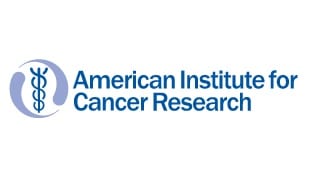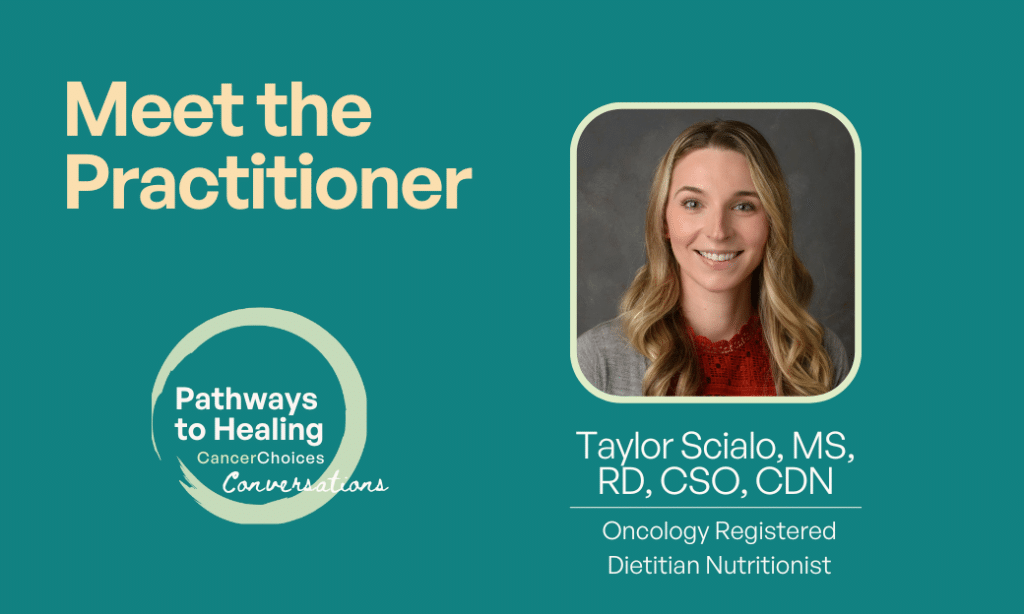Eating Well at a glance
“Let thy food be thy medicine and thy medicine be thy food.” – Hippocrates
Eating Well plays a key role in supporting your health during cancer treatment and beyond. While Eating Well alone won’t prevent or cure cancer, nutrition is a powerful tool that works alongside other therapies to boost your body’s response to treatment and improve your quality of life. Both conventional and integrativein cancer care, a patient-centered approach combining the best of conventional care, self care, and evidence-informed complementary care in an integrated plan oncology professionals recommend Eating Well to control cancer.
Of all the 7 Lifestyle Practices, Eating Well is the one most likely to make its way into people’s cancer care plans. You might decide to make Eating Well a priority if:
- You have a cancer that is strongly linked to diet, where diet contributes to cancer growth or is linked to improved outcomes.
- You have a metabolic imbalance or disease, such as insulin resistance, diabetes, or obesity, all of which are linked to cancer. Your diet might improve these conditions and make your body less supportive of cancer.
- You are drawn to this practice for whatever reason. Trust your intuition.

Free Monthly Q&A with Dr. Mary Hardy, MD
Every 2nd Wednesday | 4 PM PST/7 PM EST
2025 series begins on January 8th
Join our free monthly community Q&A sessions with Dr. Mary Hardy, a renowned integrative medicine physician, as she answers your questions about managing cancer treatment side effects, communicating effectively with your healthcare team, and incorporating healthy living practices into your daily routine. This is a unique opportunity to get expert advice tailored to your needs, in a supportive and compassionate environment.
Reserve your spot today ›
Benefits
Eating Well (or eating a healthy diet) can lower inflammation, making your body less supportive of cancer growth. Research shows that people who follow professional dietary guidelines significantly improve their survival rates and reduce their risks of cancer recurrence. Eating Well can also help manage side effects like fatigue, dehydration, depression, and gastrointestinal issues.
Eating Well can have a circular relationship with some side effects. For example, food choices are interconnected with stress, anxiety, and depression: improving food choices may reduce stress and anxiety, and reducing stress might improve food choices.1Zellner DA, Loaiza S et al. Food selection changes under stress. Physiology & Behavior. 2006 Apr 15;87(4):789-93; Yau YH, Potenza MN. Stress and eating behaviors. Minerva Endocrinology. 2013 Sep;38(3):255-67.
General diet guidelines
Many evidence-based diets that benefit people with cancer center around plant-based whole foods. These are generally good foods to include in your diet regularly (but check with your doctor or registered dietitian for any restrictions you might have):
- Vegetables, especially broccoli and related (cruciferous) vegetables, plus carrots, squash, sweet potatoes and tomatoes—which contain carotenoids—and chili peppers
- Colorful fruits like berries, mango, and cantaloupe
- Alliums: garlic, onions, shallots, scallions, and leeks
- Edible mushrooms
- Whole grains like quinoa and oats2Mayo Clinic Staff. Whole grains: Hearty options for a healthy diet. Mayo Clinic. Viewed November 26, 2024.
- Plant proteins like beans, nuts, and seeds
- Healthy monounsaturated fats like omega-3 fatty acids found in walnuts and wild-caught salmon and sardines
- Fermented foods like plain yogurt, kombucha, and kimchi
- Green tea
Limit red and processed meats, sugar-sweetened foods and drinks, highly refined grains (like white rice or pasta made from refined wheat flour), and alcohol. Experts also advise that taking nutritional supplements will not make up for an unhealthy diet.
Rebecca Katz, author of several anticancer cookbooks, has created an online resource called the Cancer-Fighting Kitchen. Get the free Cancer-Fighting Kitchen ebook when you sign up for CancerChoices emails.
See a more detailed list of which foods to eat and which foods to limit ›
Read the research for specific diets and nutrients
Does Eating Well always mean restricting foods?
Eating Well doesn’t require a sudden diet revolution. Your ideal diet might evolve over time, especially depending on where you are in your treatment journey. Listen to your body, ask your healthcare team for a consult with an oncology dietician, and find what works best for you. Ultimately, Eating Well is about nourishing your body in a way that feels good and supports your healing process.
CancerChoices co-founder Michael Lerner emphasizes that Eating Well is a personal and personalized choice. “Eating Well sends your body a signal that you are willing to do something for yourself because you matter. You are dedicating yourself to healing with this cancer,” he writes to our readers. “But what does Eating Well mean? The answer goes back to the most important question: ‘What matters now for you?’”
Though we present food choices here that have “anticancer” scientific evidence, that does not mean you must follow these suggestions in your own cancer care. For you, at this moment, Eating Well might mean eating the foods you enjoy, even if they are not considered “healthy.” Yet, Eating Well also means that over time, you can learn ways to make your comfort foods more nutritious and still satisfying.
At the end of the day, Eating Well is a choice you can make as part of your own health plan. Whether you choose to follow a specific diet comes down to what matters to you, what feels nourishing, and what you can sustain.
On this page
Eating Well and cancer:
Eating Well and cancer
Improving treatment outcomes
Eating Well is strongly linked to improved cancer outcomes, with research showing that diets rich in plant-based foods, such as vegetables, fruits, and legumes (such as beans, peas, lentils, and peanuts), can significantly improve cancer survival rates and reduce cancer growth.3Solans M, Chan DSM, Mitrou P, Norat T, Romaguera D. A systematic review and meta-analysis of the 2007 WCRF/AICR score in relation to cancer-related health outcomes. Annals of Oncology. 2020 Mar;31(3):352-368; Inoue-Choi M, Robien K, Lazovich D. Adherence to the WCRF/AICR guidelines for cancer prevention is associated with lower mortality among older female cancer survivors. Cancer Epidemiology, Biomarkers & Prevention. 2013 May;22(5):792-802; Richman EL, Carroll PR, Chan JM. Vegetable and fruit intake after diagnosis and risk of prostate cancer progression. International Journal of Cancer. 2012 Jul 1;131(1):201-10. For instance, women with breast cancer who follow a low-fat diet with high vegetable and fruit intake have better survival rates.4Prentice RL, Aragaki AK et al. Low-fat dietary pattern among postmenopausal women influences long-term cancer, cardiovascular disease, and diabetes outcomes. Journal of Nutrition. 2019 Jun 8. pii: nxz107; Chlebowski RT, Aragaki AK et al. Dietary modification and breast cancer mortality: long-term follow-up of the Women’s Health Initiative randomized trial. Journal of Clinical Oncology. 2020;38(13):1419‐1428. People with colorectal cancer also survive longer and have lower risk of metastasis if they eat less fat, red or processed meat, and processed grains such as white flour and white rice and follow ACS guidelines on physical activity and nutrition that include eating a diet rich in vegetables, fruits, and whole grains.5Schwedhelm C, Boeing H, Hoffmann G, Aleksandrova K, Schwingshackl L. Effect of diet on mortality and cancer recurrence among cancer survivors: a systematic review and meta-analysis of cohort studies. Nutrition Reviews. 2016 Dec;74(12):737-748; Van Blarigan EL, Fuchs CS et al. Association of survival with adherence to the American Cancer Society Nutrition and Physical Activity Guidelines for Cancer Survivors after colon cancer diagnosis: The CALGB 89803/Alliance Trial. JAMA Oncology. 2018 Apr 12; Zhu Y, Wu H et al. Dietary patterns and colorectal cancer recurrence and survival: a cohort study. BMJ Open. 2013 Feb 7;3(2). pii: e002270; Meyerhardt JA, Niedzwiecki D et al. Association of dietary patterns with cancer recurrence and survival in patients with stage III colon cancer. Journal of the American Medical Association. 2007 Aug 15;298(7):754-64. People with head and neck cancer who eat more vegetables before their diagnoses have lower mortality than people who eat fewer vegetables.6Hurtado-Barroso S, Trius-Soler M, Lamuela-Raventós RM, Zamora-Ros R. Vegetable and fruit consumption and prognosis among cancer survivors: a systematic review and meta-analysis of cohort studies. Advances in Nutrition. 2020 Nov 16;11(6):1569-1582.
Some foods are linked to specific cancer-fighting benefits. People with bladder cancer who consume more cruciferous vegetables, like broccoli, experience lower cancer-related mortality.7Tang L, Zirpoli GR et al. Intake of cruciferous vegetables modifies bladder cancer survival. Cancer Epidemiology, Biomarkers & Prevention. 2010 Jul;19(7):1806-11. Higher protein intake improves survival in people with brain cancers of certain grades, while postmenopausal women with breast cancer may live longer from diets high in fiber or plant lignans (found in flaxseed, sesame, broccoli, and green tea, among other sources).8DeLorenze GN, McCoy L et al. Daily intake of antioxidants in relation to survival among adult patients diagnosed with malignant glioma. BMC Cancer. 2010 May 19;10:215; Buck K, Zaineddin AK et al. Estimated enterolignans, lignan-rich foods, and fibre in relation to survival after postmenopausal breast cancer. British Journal of Cancer. 2011 Oct 11;105(8):1151-7; Olsen A, Christensen J, et al. Prediagnostic plasma enterolactone levels and mortality among women with breast cancer. Breast Cancer Research and Treatment. 2011;128:883-889; Guglielmini P, Rubagotti A, Boccardo F. Serum enterolactone levels and mortality outcome in women with early breast cancer: a retrospective cohort study. Breast Cancer Research and Treatment. 2012;132:661-668. Tree nuts and green tea can improve outcomes for people with colorectal and ovarian cancers respectively.9Fadelu T, Zhang S et al. Nut consumption and survival in patients with stage III colon cancer: results from CALGB 89803 (Alliance). Journal of Clinical Oncology. 2018 Feb 28:JCO2017755413; Zhang M, Lee AH, Binns CW, Xie X. Green tea consumption enhances survival of epithelial ovarian cancer. International Journal of Cancer. 2004 Nov 10;112(3):465-9. Integrating healthful dietary practices with conventional cancer treatments may enhance treatment effectiveness as well as improve your quality of life.
(We strongly emphasize that Eating Well alone will not prevent, cure, or control cancer or prevent recurrence. Like every other therapy or approach included on this website, Eating Well is one component of an individualized integrative plan rather than a stand-alone therapy.)
Optimizing body terrain
Eating Well optimizes your body's internal terrainthe internal conditions of your body, including nutritional status, fitness, blood sugar balance, hormone balance, inflammation, and more, making it less supportive of cancer growth. A diet centered around plant-based foods and carotenoid-rich items such as tomatoes, carrots, and sweet potatoes helps maintain healthy body weight and lower body fat, both key factors in limiting cancer growth.10Arnotti K, Bamber M. Fruit and vegetable consumption in overweight or obese individuals: a meta-analysis. Western Journal of Nursing Research. 2020 Apr;42(4):306-314; Block K, Gyllenhaal C. Chapter 6: Nutritional Interventions in Cancer. In Abrams DI, Weil AT. Integrative Oncology. 2nd Edition. New York, NY: Oxford University Press. 2014; Abdull Razis AF, Noor NM. Cruciferous vegetables: dietary phytochemicals for cancer prevention. Asian Pacific Journal of Cancer Prevention. 2013;14(3):1565-70; Sluijs I, Beulens JW, Grobbee DE, van der Schouw YT. Dietary carotenoid intake is associated with lower prevalence of metabolic syndrome in middle-aged and elderly men. Journal of Nutrition. 2009 May;139(5):987-92. Green tea, known for its powerful antioxidant catechinsnaturally occurring compounds in foods such as green tea, red wine, broad beans, and chocolate. Studies show these compounds can protect your body's cells from damage caused by harmful molecules., is associated with lower body fat, smaller waist circumference, and improved metabolic markers like blood sugar and insulin levels.11Neyestani TR, Nikooyeh B. A comprehensive overview on the effects of green tea on anthropometric measures, blood pressure, glycemic and lipidemic status: An umbrella review and meta meta-analysis study. Nutrition, Metabolism, and Cardiovascular Diseases. 2022 Sep;32(9):2026-2040. Regularly eating legumes can improve blood sugar control, reducing the risk of insulin resistance and type 2 diabetes, both of which are associated with higher cancer risks.12Sievenpiper JL, Kendall CW et al. Effect of non-oil-seed pulses on glycaemic control: a systematic review and meta-analysis of randomised controlled experimental trials in people with and without diabetes. Diabetologia. 2009 Aug;52(8):1479-95; Hibi M, Takase H, Iwasaki M, Osaki N, Katsuragi Y. Efficacy of tea catechin-rich beverages to reduce abdominal adiposity and metabolic syndrome risks in obese and overweight subjects: a pooled analysis of 6 human trials. Nutrition Research. 2018 Jul;55:1-10; Shen W, Pan Y et al. Effects of tea consumption on anthropometric parameters, metabolic indexes and hormone levels of women with polycystic ovarian syndrome: a systematic review and meta-analysis of randomized controlled trials. Frontiers in Endocrinology (Lausanne). 2021 Dec 13;12:736867; Basu A, Sanchez K et al. Green tea supplementation affects body weight, lipids, and lipid peroxidation in obese subjects with metabolic syndrome. Journal of the American College of Nutrition. 2010 Feb;29(1):31-40. Eating earlier in the day and limiting night-time meals also seem to support healthier blood sugar and weight management.13Young IE, Poobalan A, Steinbeck K, O’Connor HT, Parker HM. Distribution of energy intake across the day and weight loss: A systematic review and meta-analysis. Obesity Reviews. 2022 Dec 18:e13537; Mirghani H. The effect of breakfast skipping and late night eating on body mass index and glycemic control among patients with type 2 diabetes mellitus. Cureus. 2021 Jun 23;13(6):e15853.
Hormonal balance and inflammation play crucial roles in shaping your body’s terrain. Inflammation is a major player in various health issues, including cancer, and foods like cruciferous vegetables (broccoli, kale) and fermented foods (such as yogurt or kimchi) can help reduce inflammation. Conversely, foods high in fat and refined carbs can exacerbate inflammation.14Totsch SK, Waite ME, Sorge RE. Dietary influence on pain via the immune system. Progress in Molecular Biology and Translational Science. 2015;131:435-69; Navarro SL, Schwarz Y et al. Cruciferous vegetables have variable effects on biomarkers of systemic inflammation in a randomized controlled trial in healthy young adults. Journal of Nutrition. 2014 Nov;144(11):1850-7; Jiang Y, Wu SH et al. Cruciferous vegetable intake is inversely correlated with circulating levels of proinflammatory markers in women. Journal of the Academy of Nutrition and Dietetics. 2014 May;114(5):700-8.e2; Ghavipour M, Saedisomeolia A et al. Tomato juice consumption reduces systemic inflammation in overweight and obese females. British Journal of Nutrition. 2013 Jun;109(11):2031-5; Riso P, Visioli F et al. Effect of a tomato-based drink on markers of inflammation, immunomodulation, and oxidative stress. Journal of Agricultural and Food Chemistry. 2006 Apr 5;54(7):2563-6; Eichelmann F, Schwingshackl L, Fedirko V, Aleksandrova K. Effect of plant-based diets on obesity-related inflammatory profiles: a systematic review and meta-analysis of intervention trials. Obesity Reviews. 2016 Nov;17(11):1067-1079; Bhargava, HD. Natural Anti-Inflammatory Diet. Nourish by WebMD. August 11, 2020. Viewed April 22, 2021; Norde MM, Collese TS, Giovannucci E, Rogero MM. A posteriori dietary patterns and their association with systemic low-grade inflammation in adults: a systematic review and meta-analysis. Nutrition Reviews. 2021 Feb 11;79(3):331-350; Jahns L, Conrad Z et al. A diet high in carotenoid-rich vegetables and fruits favorably impacts inflammation status by increasing plasma concentrations of IFN-α2 and decreasing MIP-1β and TNF-α in healthy individuals during a controlled feeding trial. Nutrition Research. 2018 Apr;52:98-104; Galland L. Diet and inflammation. Nutrition in Clinical Practice. 2010 Dec;25(6):634-40; Kopf JC, Suhr MJ et al. Role of whole grains versus fruits and vegetables in reducing subclinical inflammation and promoting gastrointestinal health in individuals affected by overweight and obesity: a randomized controlled trial. Nutrition Journal. 2018 Jul 30;17(1):72; Oliveira A, Rodríguez-Artalejo F, Lopes C. The association of fruits, vegetables, antioxidant vitamins and fibre intake with high-sensitivity C-reactive protein: sex and body mass index interactions. European Journal of Clinical Nutrition. 2009 Nov;63(11):1345-52. A healthy gut microbiome, supported by fiber-rich foods, whole grains, and fermented items, improves your body terrain in many ways, including strengthening your immune system and reducing inflammation.15Scott KP, Gratz SW, Sheridan PO, Flint HJ, Duncan SH. The influence of diet on the gut microbiota. Pharmacological Research. 2013 Mar;69(1):52-60; Wu GD, Chen J et al. Linking long-term dietary patterns with gut microbial enterotypes. Science. 2011 Oct 7;334(6052):105-8. Diets high in animal protein, sugar, and fat can disrupt this microbiome balance, increasing cancer and other health risks.16Singh RK, Chang HW et al. Influence of diet on the gut microbiome and implications for human health. Journal of Translational Medicine 2017 Apr 8;15(1):73; De Filippo C, Cavalieri D et al. Impact of diet in shaping gut microbiota revealed by a comparative study in children from Europe and rural Africa. Proceedings of the National Academy of Sciences of the USA. 2010 Aug 17;107(33):14691-6. Hormone imbalances—such as elevated insulin, testosterone, or estradiol—can also affect cancer risk and can be managed through balanced nutrition and exercise.17de Roon M, May AM et al. Effect of exercise and/or reduced calorie dietary interventions on breast cancer-related endogenous sex hormones in healthy postmenopausal women. Breast Cancer Research. 2018 Aug 2;20(1):81; Natalucci V, Marini CF et al. Effects of a home-based lifestyle intervention program on cardiometabolic health in breast cancer survivors during the COVID-19 lockdown. Journal of Clinical Medicine. 2021 Jun 17;10(12):2678; Barnard RJ, Gonzalez JH, Liva ME, Ngo TH. Effects of a low-fat, high-fiber diet and exercise program on breast cancer risk factors in vivo and tumor cell growth and apoptosis in vitro. Nutrition and Cancer. 2006;55(1):28-34; Kahleova H, Matoulek M et al. Vegetarian diet improves insulin resistance and oxidative stress markers more than conventional diet in subjects with type 2 diabetes. Diabetic Medicine. 2011 May;28(5):549-59. You can decrease oxidative stress, which contributes to cell damage, by regularly eating foods like blueberries, extra virgin olive oil, and cruciferous vegetables.18Nair AR, Mariappan N, Stull AJ, Francis J. Blueberry supplementation attenuates oxidative stress within monocytes and modulates immune cell levels in adults with metabolic syndrome: a randomized, double-blind, placebo-controlled trial. Food & Function. 2017 Nov 15;8(11):4118-4128; Riso P, Klimis-Zacas D et al. Effect of a wild blueberry (Vaccinium angustifolium) drink intervention on markers of oxidative stress, inflammation and endothelial function in humans with cardiovascular risk factors. European Journal of Nutrition. 2013 Apr;52(3):949-61; Johnson SA, Feresin RG et al. Effects of daily blueberry consumption on circulating biomarkers of oxidative stress, inflammation, and antioxidant defense in postmenopausal women with pre- and stage 1-hypertension: a randomized controlled trial. Food & Function. 2017 Jan 25;8(1):372-380; Fowke JH, Morrow JD, Motley S, Bostick RM, Ness RM. Brassica vegetable consumption reduces urinary F2-isoprostane levels independent of micronutrient intake. Carcinogenesis. 2006 Oct;27(10):2096-102; Murashima M, Watanabe S, Zhuo XG, Uehara M, Kurashige A. Phase 1 study of multiple biomarkers for metabolism and oxidative stress after one-week intake of broccoli sprouts. Biofactors. 2004;22(1-4):271-5; Rus A, Molina F, Ramos MM, Martínez-Ramírez MJ, Del Moral ML. Extra virgin olive oil improves oxidative stress, functional capacity, and health-related psychological status in patients with fibromyalgia: a preliminary study. Biological Research for Nursing. 2017 Jan;19(1):106-115. All in all, adhering to a nutritious whole foods diet like the Mediterranean diet › will help you foster a more healing and cancer-resistant environment in your body.
Managing side effects and promoting wellness
Eating Well helps people with cancer alleviate or prevent several side effects. There is substantial evidence supporting its role in reducing anxiety and depression. A diet rich in vegetables, fruits, whole grains, and lean proteins is linked to lower levels of anxiety, while people with diets high in processed baked goods, fried foods, and fatty meats have a higher risk of anxiety symptoms.19Jacka FN, Pasco JA et al. Association of Western and traditional diets with depression and anxiety in women. American Journal of Psychiatry. 2010 Mar;167(3):305-11; McMartin SE, Jacka FN, Colman I. The association between fruit and vegetable consumption and mental health disorders: evidence from five waves of a national survey of Canadians. Preventive Medicine. 2013 Mar;56(3-4):225-30; Tolkien K, Bradburn S, Murgatroyd C. An anti-inflammatory diet as a potential intervention for depressive disorders: a systematic review and meta-analysis. Clinical Nutrition. 2019 Oct;38(5):2045-2052; Salari-Moghaddam A, Keshteli AH, Afshar H, Esmaillzadeh A, Adibi P. Association between dietary inflammatory index and psychological profile in adults. Clinical Nutrition. 2019 Oct;38(5):2360-2368. Consuming high amounts of caffeine can worsen anxiety symptoms, including jitteriness.20Nadeem IM, Shanmugaraj A et al. Energy drinks and their adverse health effects: a systematic review and meta-analysis. Sports Health. 2021 May-Jun;13(3):265-277; Hofmeister EH, Muilenburg JL, Kogan L, Elrod SM. Over-the-counter stimulant, depressant, and nootropic use by veterinary students. Journal of Veterinary Medical Education. 2010 Winter;37(4):403-16; Richards G, Smith A. Caffeine consumption and self-assessed stress, anxiety, and depression in secondary school children. Journal of Psychopharmacology. 2015 Dec;29(12):1236-47. Depression also responds well to dietary interventions. People who follow the healthy dietary guidelines above experience moderate improvements in depressive symptoms, while diets high in sugar and unhealthy fats increase the likelihood of depression.21Firth J, Marx W et al. The effects of dietary improvement on symptoms of depression and anxiety: a meta-analysis of randomized controlled trials. Psychosomatic Medicine. 2019 Apr;81(3):265-280; Furness K, Sarkies MN, Huggins CE, Croagh D, Haines TP. Impact of the method of delivering electronic health behavior change interventions in survivors of cancer on engagement, health behaviors, and health outcomes: systematic review and meta-analysis. Journal of Medical Internet Research. 2020 Jun 23;22(6):e16112.
Cardiovascular symptoms also benefit from a healthy diet, and higher fruit and vegetable intake helps lower blood pressure in people who are overweight; better cardiovascular health in turn lowers risk of cancer.22Arnotti K, Bamber MD, Brewer V. Dietary interventions and blood pressure in overweight or obese individuals: A systematic review and meta-analysis. Clinical Nutrition. 2022 Apr;41(4):1001-1012. Green tea has also been strongly linked to reductions in both systolic and diastolic blood pressure.23Neyestani TR, Nikooyeh B. A comprehensive overview on the effects of green tea on anthropometric measures, blood pressure, glycemic and lipidemic status: An umbrella review and meta meta-analysis study. Nutrition, Metabolism, and Cardiovascular Diseases. 2022 Sep;32(9):2026-2040; Khalesi S, Sun J et al. Green tea catechins and blood pressure: a systematic review and meta-analysis of randomised controlled trials. European Journal of Nutrition. 2014 Sep;53(6):1299-311. Diets high in fiber and low in fat and lactose can alleviate gastrointestinal symptoms such as diarrhea, constipation, and nausea.24Bye A, Kaasa S, Ose T, Sundfør K, Tropé C. The influence of low fat, low lactose diet on diarrhoea during pelvic radiotherapy. Clinical Nutrition. 1992 Jun;11(3):147-53; Lawrie TA, Green JT et al. Interventions to reduce acute and late adverse gastrointestinal effects of pelvic radiotherapy for primary pelvic cancers. Cochrane Database of Systematic Reviews. 2018 Jan 23;1(1):CD012529. Nutritional interventions during cancer treatments, like immunonutrition, reduce the severity of esophagitis and diarrhea.25Zheng X, Yu K et al. Effects of immunonutrition on chemoradiotherapy patients: a systematic review and meta-analysis. JPEN Journal of Parenteral and Enteral Nutrition. 2020 Jul;44(5):768-778. Ginger tea has shown promise for helping relieve nausea and vomiting caused by chemotherapy.26Wazqar DY, Thabet HA, Safwat AM. A quasi-experimental study of the effect of ginger tea on preventing nausea and vomiting in patients with gynecological cancers receiving cisplatin-based regimens. Cancer Nursing. 2021 Nov-Dec 01;44(6):E513-E519. Consuming less alcohol and caffeine helps prevent dehydration.27Zhang Y, Coca A et al. Caffeine and diuresis during rest and exercise: a meta-analysis. Journal of Science and Medicine in Sport. 2015 Sep;18(5):569-74.
Plant-based whole foods and foods high in omega-3 fatty acids help reduce fatigue and may improve sleep quality, as seen in studies involving people with breast cancer.28Eichelmann F, Schwingshackl L, Fedirko V, Aleksandrova K. Effect of plant-based diets on obesity-related inflammatory profiles: a systematic review and meta-analysis of intervention trials. Obesity Reviews. 2016 Nov;17(11):1067-1079; Navarro SL, Schwarz Y et al. Cruciferous vegetables have variable effects on biomarkers of systemic inflammation in a randomized controlled trial in healthy young adults. Journal of Nutrition. 2014 Nov;144(11):1850-7; Qi L, van Dam RM et al. Whole-grain, bran, and cereal fiber intakes and markers of systemic inflammation in diabetic women. Diabetes Care. 2006 Feb;29(2):207-11. When it comes to stress, researchers have found that eating healthy comfort foods, such as whole grains with protein, can provide similar stress relief as eating unhealthy options.29Finch LE, Cummings JR, Tomiyama AJ. Cookie or clementine? Psychophysiological stress reactivity and recovery after eating healthy and unhealthy comfort foods. Psychoneuroendocrinology. 2019 Sep;107:26-36. People following a nutrient-rich diet during or after cancer treatment have better body composition.30Bye A, Sandmael JA et al. Exercise and nutrition interventions in patients with head and neck cancer during curative treatment: a systematic review and meta-analysis. Nutrients. 2020 Oct 22;12(11):3233; López Hellín J, Baena-Fustegueras JA, Sabín-Urkía P, Schwartz-Riera S, García-Arumí E. Nutritional modulation of protein metabolism after gastrointestinal surgery. European Journal of Clinical Nutrition. 2008;62(2):254-262. Eating nutritious food not only improves mental and physical health, it also enhances quality of life and physical function for people with cancer.31Rodriguez AM, Komar A et al. A scoping review of rehabilitation interventions for survivors of head and neck cancer. Disability and Rehabilitation. 2019 Aug;41(17):2093-2107; Lawrie TA, Green JT et al. Interventions to reduce acute and late adverse gastrointestinal effects of pelvic radiotherapy for primary pelvic cancers. Cochrane Database of Systematic Reviews. 2018 Jan 23;1(1):CD012529; Kaidarova DR, Kopp MV et al. Multicomponent nutritional supplement Oncoxin and its influence on quality of life and therapy toxicity in patients receiving adjuvant chemotherapy. Oncology Letters. 2019 Nov;18(5):5644-5652.
Reducing cancer risk
Eating Well is strongly linked to a lower risk of cancer and cancer recurrence. In 2015, over 80,000 new cancer cases in the U.S. were associated with poor eating habits, with middle-aged men and racial/ethnic minorities experiencing the highest burdens.32Zhang FF, Cudhea F et al. Preventable cancer burden associated with poor diet in the United States. JNCI Cancer Spectrum. 2019 May 22;3(2):pkz034. Colorectal cancer is particularly diet-sensitive.33Zhang FF, Cudhea F et al. Preventable cancer burden associated with poor diet in the United States. JNCI Cancer Spectrum. 2019 May 22;3(2):pkz034. Multiple nutrient-rich eating plans, including the Healthy Eating Index and Mediterranean Diet, are associated with lower cancer mortality.34Shan Z, Wang F et al. Healthy eating patterns and risk of total and cause-specific mortality. JAMA Internal Medicine. 2023 Feb 1;183(2):142-153. People who eat five servings of vegetables—excluding starchy ones like peas, corn, and potatoes—and fruits per day before a cancer diagnosis have lower cancer mortality and lower overall mortality rates than people who eat fewer of these foods.35Wang DD, Li Y, Bhupathiraju SN, Rosner BA et al. Fruit and vegetable intake and mortality: results from 2 prospective cohort studies of US men and women and a meta-analysis of 26 cohort studies. Circulation. 2021 Apr 27;143(17):1642-1654. Similarly, anti-inflammatory diets (such as plant-based diets) are linked to a reduced risk of developing cancer, while pro-inflammatory diets (such as those high in saturated fatty acids or with a high omega-6 to omega-3 ratio) can increase that risk.36Namazi N, Larijani B, Azadbakht L. Association between the dietary inflammatory index and the incidence of cancer: a systematic review and meta-analysis of prospective studies. Public Health. 2018 Nov;164:148-156. Regularly consuming fermented dairy foods, mushrooms, and olive oil also lowers risks of some cancers, as does limiting meats (including red and processed meat or poultry).37Zhang K, Dai H, Liang W, Zhang L, Deng Z. Fermented dairy foods intake and risk of cancer. International Journal of Cancer. 2019 May 1;144(9):2099-2108; Kim Y, Je Y, Giovannucci EL. Association between dietary fat intake and mortality from all-causes, cardiovascular disease, and cancer: a systematic review and meta-analysis of prospective cohort studies. Clinical Nutrition. 2021 Mar;40(3):1060-1070; Ba DM, Ssentongo P et al. Higher mushroom consumption is associated with lower risk of cancer: a systematic review and meta-analysis of observational studies. Advances in Nutrition. 2021 Mar 16:nmab015; Watling CZ, Schmidt JA et al. Risk of cancer in regular and low meat-eaters, fish-eaters, and vegetarians: a prospective analysis of UK Biobank participants. BMC Medicine. 2022 Feb 24;20(1):73; Levine ME, Suarez JA et al. Low protein intake is associated with a major reduction in IGF-1, cancer, and overall mortality in the 65 and younger but not older population. Cell Metabolism. 2014 Mar 4;19(3):407-17.
Eating chili peppers and drinking coffee can lower risk of cancer mortality, while evidence suggests that black tea reduces overall cancer risks.38Kaur M, Verma BR et al. P1036 – Impact of chilli-pepper intake on all-cause and cardiovascular mortality—a systematic review and meta-analysis. American Heart Association Scientific Sessions. November 13, 2020. Viewed December 7, 2020; Shin S, Lee JE et al. Coffee and tea consumption and mortality from all causes, cardiovascular disease and cancer: a pooled analysis of prospective studies from the Asia Cohort Consortium. International Journal of Epidemiology. 2021 Sep 1:dyab161. Eating Well can also help prevent some specific cancers: a diet rich in omega-3s (from fish and nuts) and dark green leafy vegetables lowers the risk of colorectal cancer, as does eating calcium- or fiber-rich foods.39Kim Y, Kim J. Intake or blood levels of n-3 polyunsaturated fatty acids and risk of colorectal cancer: a systematic review and meta-analysis of prospective studies. British Journal of Cancer. 2020 Apr;122(8):1260-1270; Veettil SK, Wong TY et al. Role of diet in colorectal cancer incidence: umbrella review of meta-analyses of prospective observational studies. JAMA Network Open. 2021 Feb 1;4(2):e2037341; Bailie L, Loughrey MB, Coleman HG. Lifestyle risk factors for serrated colorectal polyps: a systematic review and meta-analysis. Gastroenterology. 2017 Jan;152(1):92-104; Aune D, Chan DS et al. Dietary fibre, whole grains, and risk of colorectal cancer: systematic review and dose-response meta-analysis of prospective studies. BMJ. 2011 Nov 10;343:d6617. On the other hand, processed and red meats, along with ultra-processed foods, increase the chances of getting colorectal cancer.40Veettil SK, Wong TY et al. Role of diet in colorectal cancer incidence: umbrella review of meta-analyses of prospective observational studies. JAMA Network Open. 2021 Feb 1;4(2):e2037341; Huxley RR, Ansary-Moghaddam A, Clifton P, Czernichow S, Parr CL, Woodward M. The impact of dietary and lifestyle risk factors on risk of colorectal cancer: a quantitative overview of the epidemiological evidence. International Journal of Cancer. 2009 Jul 1;125(1):171-80; Bailie L, Loughrey MB, Coleman HG. Lifestyle risk factors for serrated colorectal polyps: a systematic review and meta-analysis. Gastroenterology. 2017 Jan;152(1):92-104; Watling CZ, Schmidt JA et al. Risk of cancer in regular and low meat-eaters, fish-eaters, and vegetarians: a prospective analysis of UK Biobank participants. BMC Medicine. 2022 Feb 24;20(1):73; Isaksen IM, Dankel SN. Ultra-processed food consumption and cancer risk: a systematic review and meta-analysis. Clinical Nutrition. 2023 Mar 30;42(6):919-928. Diets high in ultra-processed foods, such as pastries and sugary snacks, lead to higher cancer risks across multiple cancer types, including central nervous system and pancreatic cancers, and chronic lymphocytic leukemia.41Isaksen IM, Dankel SN. Ultra-processed food consumption and cancer risk: a systematic review and meta-analysis. Clinical Nutrition. 2023 Mar 30;42(6):919-928.
Specific foods may also lower specific cancer risks. There is evidence, for example, that mushrooms and olive oil lower breast cancer risk, especially in postmenopausal women, and fermented dairy products (such as yogurt and kefir) lower the risks for both bladder and colorectal cancers.42Li J, Zou L et al. Dietary mushroom intake may reduce the risk of breast cancer: evidence from a meta-analysis of observational studies. PLoS One. 2014 Apr 1;9(4):e93437; Ba DM, Ssentongo P et al. Higher mushroom consumption is associated with lower risk of cancer: a systematic review and meta-analysis of observational studies. Advances in Nutrition. 2021 Mar 16:nmab015; Psaltopoulou T, Kosti RI, Haidopoulos D, Dimopoulos M, Panagiotakos DB. Olive oil intake is inversely related to cancer prevalence: a systematic review and a meta-analysis of 13,800 patients and 23,340 controls in 19 observational studies. Lipids in Health and Disease. 2011 Jul 30;10:127; Zhang K, Dai H, Liang W, Zhang L, Deng Z. Fermented dairy foods intake and risk of cancer. International Journal of Cancer. 2019 May 1;144(9):2099-2108. Overall, following a balanced, plant-forward nutrition plan offers a clear path to lower risks of many cancers.
How to Eat Well
The diets recommended by integrative oncology experts for general anticancer effects all emphasize eating more plant-based foods. This is not the same as a vegetarian diet, though it places vegetables at the center of your meal, with whole grains, legumesa class of vegetables that includes beans, peas, and lentils, fruits, and animal products in supporting roles. Such a diet is known as a “whole foods” diet: in addition to making vegetables the star of the meal, it also minimizes highly processed food. Highly processed food usually has undergone extensive manufacturing processes and might contain ingredients such as hydrogenated oils and high fructose corn syrup, as well as numerous preservatives and added flavors.
A whole foods, plant-based diet may help build your resilience against disease, improve your physical function, and even inhibit cancer growth and spread.
How to choose the right foods for you?
First, consider your medical condition. A plant-based diet is generally safe, but you should adapt it to your specific needs, including your medical condition. It is important to discuss your diet with your healthcare team and make adjustments if you experience symptoms or side effects.
For example, if radiation treatment causes diarrhea due to colon damage, you may temporarily need to switch from whole grains to refined grains, such as eating white rice instead of brown.
If you struggle to eat enough nutritious foods due to symptoms or side effects, first managing these conditions (such as changes in appetite, dehydration, depression, or gastrointestinal issues) may be necessary before you can focus on your eating plan.
Diagnostic tests can determine if you have nutrient imbalances or deficiencies. Ask your healthcare team whether tests may be right for you, then work with a qualified oncology dietitian to interpret your results and create your eating plan.
Which foods to eat (and which to limit)
While nutrition experts focus less on individual foods than on an overall pattern of healthy eating, some foods are clearly beneficial and others should be minimized. Aim to eat foods high in vitamins, minerals, and other nutrients, but lower in calories.
Some nutrients found in many foods are beneficial for cancer risk or survival. Fiber is linked to better survival (postmenopausal breast, ovarian) and lower risk of cancer (colorectal). Plant lignanscompounds that naturally occur in a wide range of plant foods, including whole grains, beans, and berries. Flaxseed is an especially good source of plant lignans. are also linked to lower cancer risk (breast and colorectal in women, and lung) and better survival (postmenopausal breast cancer). Many nutrients have been found to support a body terrainthe internal conditions of your body, including nutritional status, fitness, blood sugar balance, hormone balance, inflammation, and more that is less conducive to cancer growth.
Foods to eat more of
Find sources for this section in How Can Eating Well Help You? What the Research Says ›
Vegetables and fruits:
- Cruciferous veggies: broccoli, cauliflower, kale, Brussels sprouts, cabbage
- Lower breast cancer recurrence; less prostate cancer growth; promotes healthy gut microbiome
- Caretenoids found in orange, red, deep yellow vegetables and fruits: carrots, sweet potatoes, tomatoes, mango
- Better metastatic breast cancer survival; lower prostate and head and neck cancer risk; better blood sugar and insulin balance; good source of anti-inflammatory carotenoids
- Chili peppers containing capsaicin
- Lower cancer mortality
- Blueberries: rich in antioxidants and plant lignans
- Lower cancer risk (breast and colorectal in women, and lung); better survival (breast); anti-inflammatory; antioxidant; promote balance in bleeding and coagulation
- Pomegranate juice or extract
- Slows prostate cancer progression
- Alliums: garlic, onions, leeks
- Anti-inflammatory and antioxidant
- Quercetin: found in apples, black or green tea, onions, red grapes or wine, cherries, raspberries, citrus fruits, and broccoli
- Anti-inflammatory
Healthy proteins:
- Legumes: dried beans, lentils, chickpeas, split peas
- Good source of protein, fiber, vitamins, minerals; improves blood glucose and insulin levels; antioxidant
- Flaxseed:
- Good source of plant lignanscompounds that naturally occur in a wide range of plant foods, including whole grains, beans, and berries. Flaxseed is an especially good source of plant lignans. and other phytoestrogenscompounds that naturally occur in a variety of foods such as soy, some seeds (flaxseed, sesame seeds), some vegetables (sprouts, cabbage, spinach) and many others. Phytoestrogens can act like the hormone estrogen in your body.; lower cancer (breast and colorectal in women, and lung); better survival (breast)
- Soy foods:
- Good source of genistein, an anti-inflammatory and antioxidant compound; better breast cancer survival and lower risk of recurrence
- Soy supplements do not provide the same benefits as soy foods
- Nuts:
- Lower risk of colorectal cancer and recurrence; better survival; anti-inflammatory; better blood glucose and insulin levels
- Animal proteins with higher omega-3 to omega-6 ratios: include wild-caught salmon, mackerel, sardines, and high-omega-3 eggs
- Lower cancer risk (colorectal); better survival (head and neck, ovarian); anti-inflammatory. However, men who eat eggs may have higher risk of prostate cancer or recurrence.43Moss R. Eggs and prostate cancer…a word to the wise. October 18, 2022. Viewed March 26, 2023.
Whole grains:
- Rich in fiber, B vitamins, minerals (iron, magnesium, selenium) and plant lignans; better survival of head and neck cancer; lower risk of breast cancer recurrence and colorectal cancer; promote healthy microbiome and fewer gastrointestinal symptoms
Healthy fats:
- Omega-3s: olive oil, nut oils, fish
- Lower risk of cancers, including colorectal, breast, skin; anti-inflammatory; better sleep quality and less fatigue
- Omega-6s: vegetable oils (safflower, sunflower, corn, soybean)
- Not as healthy as omega-3s, but a better choice than saturated fats from animals, such as butter or lard
- Good for heart and circulation
Mushrooms:
- Lower cancer risk; very low-fat; rich in vitamin D and fiber; anti-inflammatory; antioxidant; promote immune function
Fermented foods:
- Probiotic yogurt (unsweetened and with live cultures), kefir, tempeh, natto, kombucha, miso, kimchi, sauerkraut, cultured cheese, and more
- Lower risk of many types of cancers; anti-inflammatory, promote gut health
Beverages:
- Water:
- Needed to flush out toxic substances; promotes digestion, hormone balance, and many other body terrain factors; prevents dehydration
- Green tea:
- Lower risk of several cancers, including breast; anti-inflammatory; lower body weight; lower fasting blood sugar
- Caution: avoid caffeine if you are at risk of dehydration or anxiety. Consuming high levels may put you at higher risk of some cancers such as esophageal.
- Coffee:
- Lower cancer risk; better breast cancer survival, but avoid if at risk for esophagitis from chemotherapy or radiation to the chest
- Caution: avoid caffeine if you are at risk of dehydration or anxiety. Consuming high levels may put you at higher risk of some cancers such as esophageal
Foods to eat less of
Unhealthy fats:
- Saturated fats: butter, fatty meats, processed meats like salami and bacon
- Higher cancer mortality and ovarian cancer risk
- Trans-fats: fried food, margarine, many baked goods (though manufacturers have reduced trans-fats recently; check labels for partially hydrogenated oils or trans-fats)
- Higher cancer risk (colorectal, prostate, postmenopausal breast)
Less healthy meats:
- Red meat: beef, veal, pork, lamb
- Higher risk of colorectal, esophageal, prostate cancers; promotes inflammation
- Processed meats: hot dogs, deli meats, smoked or salted meats; often called “cured”
- Source of nitrites and/or nitrates, which are probable carcinogens
- Higher risk of colorectal, stomach, esophageal, and prostate cancers
Sugars and refined grains:
- White bread, white rice, pasta, sugary drinks, sweets
- Promote growth of certain cancer cells; worse ovarian cancer survival; inflammatory; promote worse blood sugar and insulin levels, which are linked to diabetes; promote metabolic syndrome, which are risk factors for cancer and poorer survival
Beverages:
- Alcohol:
- Higher risk of several cancers; higher risk of dehydration
- Drinks containing caffeine
- Higher risk of esophageal cancer; worsens anxiety and stress symptoms; higher risk of sleep disruption and dehydration
Read the research for specific nutrients
How to cook without creating harmful chemicals
Cooking methods can impact cancer risk. High-heat methods of cooking meat, such as pan frying or grilling over an open flame, can create harmful chemicals called heterocyclic amines and polycyclic aromatic hydrocarbons (PAHs).44Rock CL, Thomson C et al. American Cancer Society guideline for diet and physical activity for cancer prevention. CA: A Cancer Journal for Clinicians. 2020;10.3322/caac.21591. Smoking meat also creates PAHs that cling to the food.45National Cancer Institute. Chemicals in Meat Cooked at High Temperatures and Cancer Risk. July 11, 2017. Viewed April 4, 2018.
It is better to cook meat slowly and at lower temperatures using methods like steaming, braising, poaching, stewing, or roasting.46Science of Cooking. Science of Slow Cooking. Viewed April 4, 2018. If you grill, you can marinate the meat, preferably in oil-free marinades, use lean cuts, and cook smaller portions mixed with vegetables–-thus forming fewer harmful chemicals.47American Institute for Cancer Research. Guide to Healthy Grilling. May 1, 2014. Viewed April 4, 2018. However, it’s important to balance this with food safety, ensuring meats reach the necessary temperatures for safe consumption. See Safe Minimum Cooking Temperatures Chart › from FoodSafety.gov.
Cooking vegetables with high heat can create acrylamide, a chemical found in foods like French fries, potato chips, and bread.48National Cancer Institute. Acrylamide and Cancer Risk. December 5, 2017. Viewed April 4, 2018. To reduce acrylamide exposure, follow the “Golden Rule”: bake, grill, or broil foods only to a light golden brown, not darker.
Eating for a healthy microbiome
Fiber from vegetables, legumes, fruits, and whole grains supports bacteria that produce short-chain fatty acids, important for colon and immune health. Prebiotics also provide fiber for these bacteria, and may be especially helpful if your gut microbes are disrupted after illness or taking antibiotics. If you have irritable bowel syndrome or other conditions that cause gas and bloating, follow your doctor’s advice on fiber intake.
Legumesa class of vegetables that includes beans, peas, and lentils promote healthy gut bacteria.49Kouris-Blazos A, Belski R. Health benefits of legumes and pulses with a focus on Australian sweet lupins. Asia Pacific Journal of Clinical Nutrition. 2016;25(1):1-17. Researchers found that people with melanoma who ate whole grains and a nutritious diet had better gut bacteria and responses to immunotherapy than those eating processed meat and foods with added sugar.50Spencer CN, Gopalakrishnan V et al. The gut microbiome (GM) and immunotherapy response are influenced by host lifestyle factors [abstract]. Proceedings of the American Association for Cancer Research Annual Meeting 2019; 2019 Mar 29-Apr 3; Atlanta, GA. Philadelphia (PA): AACR; Cancer Research 2019;79(13 Suppl):Abstract nr 2838. Good gut health is linked to better overall health outcomes, with prebiotics and fermented foods like yogurt and sauerkraut helping to restore healthy gut bacteria.51Thanikachalam K, Khan G. Colorectal cancer and nutrition. Nutrients. 2019 Jan 14;11(1). pii: E164; Bultman SJ. Emerging roles of the microbiome in cancer. Carcinogenesis. 2014;35(2):249–255; Reimer RA, Soto-Vaca A et al. Effect of chicory inulin-type fructan-containing snack bars on the human gut microbiota in low dietary fiber consumers in a randomized crossover trial. American Journal of Clinical Nutrition. 2020 Jun 1;111(6):1286-1296; Mitsou EK, Saxami G et al. Effects of rich in Β-glucans edible mushrooms on aging gut microbiota characteristics: an in vitro study. Molecules. 2020 Jun 18;25(12):2806.
Do popular “anticancer” diets actually work?
Many people turn to diet as a complement or alternative to traditional cancer treatments. Over time, various “anticancer diets” have come and gone, often sparking vigorous debate. Some are now discredited due to lack of evidence or potential harm. These diets are sometimes part of alternative therapy treatments that also include supplements and practices like coffee enemas.
There are countless diets promising results like weight loss, energy boosts, or even cancer cures, and misinformation abounds. To help, here is a summary of some popular diets and therapies, including when available, links to a review of the evidence of each diet:
- Mediterranean diet › Focuses on fruits, vegetables, grains, and olive oil, and aligns with expert recommendations.
- Ketogenic diet › Alters cancer cell metabolism and is used in protocols for hard-to-treat cancers, like brain cancer. Not for cancer prevention.
- Gonzalez Protocol™ › Involves individualized diets, supplements, and coffee enemas to alter cancer metabolism and inhibit growth, but there is only weak evidence of its benefits.
- Gerson regimen › Another diet-based therapy that includes a specific diet, supplements and coffee enemas, with no strong evidence of benefit.
Other diets include:
- Alkaline diet: Mixed opinions exist. The American Institute for Cancer Research states the acidity and alkalinity of food is not important, but some oncologists find that acidosis is associated with body terrain factors that affect cancer growth. No solid evidence supports its cancer-fighting claims.52Pizzorno J. Acidosis: an old idea validated by new research. Integrative Medicine (Encinitas). 2015 Feb;14(1):8-12; American Institute for Cancer Research. Another Cancer and Diet Claim: The Alkaline Diet. AICR Blog. Viewed November 26, 2024; Alschuler LN, Gazella KA. The Definitive Guide to Thriving after Cancer. Berkeley, California: Ten Speed Press. 2013. p. 89; McKinney N. Naturopathic Oncology, 3rd Edition. Victoria, BC, Canada: Liaison Press. 2016. p. 117.
- Intermittent fasting › May lower insulin resistance, improve chemotherapy response, and reduce side effects and risk of recurrence
- Living foods diet: A 2014 review of studies found no clinical evidence to support its use in people with cancer.53Huebner J, Marienfeld S et al. Counseling patients on cancer diets: a review of the literature and recommendations for clinical practice. Anticancer Research. 2014 Jan;34(1):39-48.
- Macrobiotic diet: There are some anecdotal claims of success, but there is no scientific backing.54Kushi LH, Cunningham JE et al. The macrobiotic diet in cancer. Journal of Nutrition. 2001 Nov;131(11 Suppl):3056S-64S; Huebner J, Marienfeld S et al. Counseling patients on cancer diets: a review of the literature and recommendations for clinical practice. Anticancer Research. 2014 Jan;34(1):39-48.
- Paleolithic (Paleo) diet: Linked to lower cancer mortality and lower general mortality, as well as reduced risk of benign colorectal tumors.55Whalen KA, Judd S et al. Paleolithic and Mediterranean diet pattern scores are inversely associated with all-cause and cause-specific mortality in adults. Journal of Nutrition. 2017 Apr;147(4):612-620.
- Vegetarian or vegan diet: People eating vegetarian or vegan diets lower their risk of cancer, create an internal environment less conducive to cancer, and may alleviate some cancer symptoms.56Dinu M, Abbate R, Gensini GF, Casini A, Sofi F. Vegetarian, vegan diets and multiple health outcomes: a systematic review with meta-analysis of observational studies. Critical Reviews in Food Science and Nutrition. 2017 Nov 22;57(17):3640-3649; Segovia-Siapco G, Sabaté J et al. Health and sustainability outcomes of vegetarian dietary patterns: a revisit of the EPIC-Oxford and the Adventist Health Study-2 cohorts. European Journal of Clinical Nutrition. 2018 Oct 2; Weigl J, Hauner H, Hauner D. Can nutrition lower the risk of recurrence in breast cancer? Breast Care (Basel). 2018 Apr;13(2):86-91; Key TJ, Appleby PN, Spencer EA, Travis RC, Roddam AW, Allen NE. Cancer incidence in vegetarians: results from the European Prospective Investigation into Cancer and Nutrition (EPIC-Oxford). American Journal of Clinical Nutrition. 2009 May;89(5):1620S-1626S.
While some of these diets may offer cancer benefits, they can also pose risks, such as nutritional imbalances or the exclusion of food groups that are proven to reduce cancer risk and promote overall health.57Zick SM, Snyder D, Abrams DI. Pros and cons of dietary strategies popular among cancer patients. Oncology (Williston Park). 2018 Nov 15;32(11):542-7.
Recommended resources
Before making changes to your eating plan, you may want to ask your oncology care team to refer you to an oncology dietitian.
Education
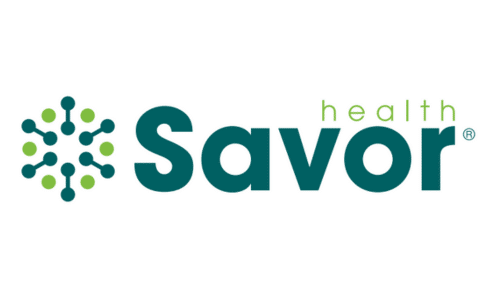
Ina, the Intelligent Nutrition Assistant ›
A knowledge-based personalized nutrition technology expert platform for people with cancer and chronic medical conditions
Recipes
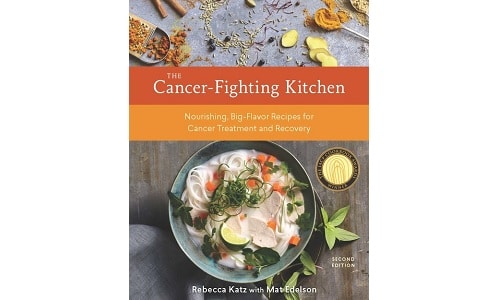
Rebecca Katz, author of several anticancer cookbooks, has created an online resource called the Cancer-Fighting Kitchen. Get the free Cancer-Fighting Kitchen ebook when you sign up for CancerChoices emails.
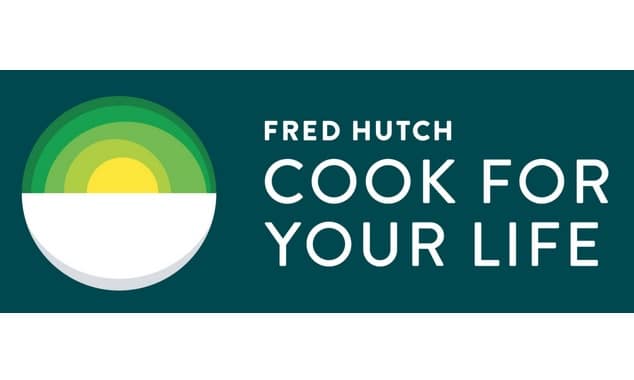
Cook for Your Life › Recipes, a blog, and other resources for people with cancer or trying to prevent it. In English and Spanish.

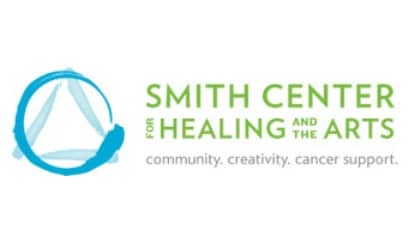
A Taste of Smith Center: Taking the Art of Good Eating Home, 3rd edition ›
A guide for preparing the delicious, nourishing meals served during the Smith Center’s week-long retreat, plus tips on food topics from menu planning and shopping lists to food storage
Soul Savory: Celebrating Our Roots with Nourishing Recipes ›
A book of outstanding home-cooking recipes from soul, southern and traditional African roots, some rendered in healthier versions
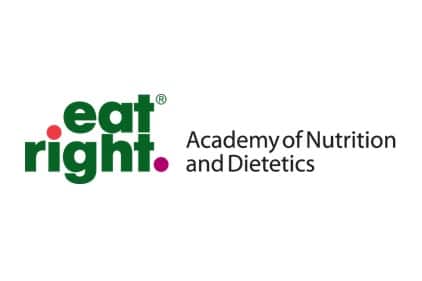
Nutrition Resources › The Oncology Nutrition Dietetic Practice Group provides recipes, menus, diets, information on nutrition, and other resources for people with cancer.
CancerChoices videos
CancerChoices Senior Clinical Consultant Laura Pole, RN, MSN, OCNS, offers tips on eating well, such as adopting a plant-based diet and intermittent fasting.
Play videoCancerChoices Senior Clinical Consultant Laura Pole, RN, MSN, OCNS, demonstrates how to make a delicious and nutritious carob banana smoothie.
Play videoCancerChoices podcast
Find a nutrition professional

Find a Nutrition Expert › Find a qualified registered dietitian nutritionist or food and nutrition practitioner who is right for you.
Integrative cancer care resources
References





